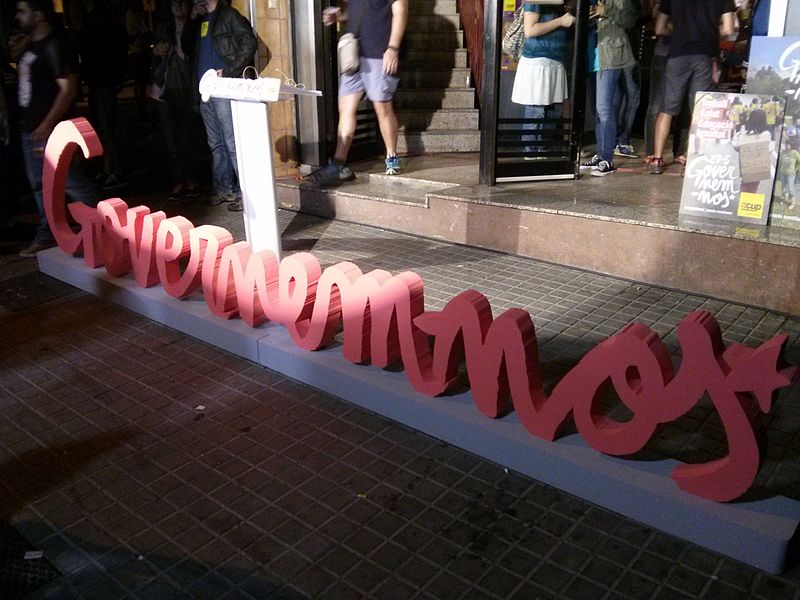Results in Catalonia
These last general elections in Spain were highly polarized due to the strong dichotomy between the two coalitions PSOE+SUMAR and PP+VOX, with a very tight result expected, which is what ended up happening. In Catalonia, on the other hand, such strong polarization did not exist and as usual, the voters’ behavior was somewhat different from the rest of Spain.
On the one hand, while participation in Spain increased by 4% compared to the 2019 elections, in Catalonia it fell by 4%, to 63%. The failure of the independence “procés” that began in 2010, which ended with the Catalan government in exile or in prison and with a strong repression that affected thousands of people, has generated a massive demobilization. Since voting was of no use, it was understandable that a part of the independence movement did not go to the polls or even called for abstention. Therefore, the low participation was foreseeable.
On the other hand, turning to the results, it is noteworthy that the right-wing coalition PP+VOX obtained only 21% of the vote, achieving just 8 out of the 48 seats in Catalonia. A result far from the result in Spain as a whole, where PP+VOX achieved 45.5% of the votes and almost obtained an absolute majority. Catalonia, very relevant due to its large number of seats, has been wall of containment of the right and far right. Thus, the coalition PP+VOX cannot govern Spain due to its particularly bad results in Catalonia.
In addition, the 34% drop in the pro-independence vote was very significant in Catalonia. The fall of the leftwing pro-independence CUP was especially notable, which lost 56% of its votes, thus losing the 2 seats it had in the Spanish parliament.
Results in Spain
In Spain, the two parties of Spain’s two-party system PSOE and PP (called PPSOE) are once again gaining strength, going from a combined 48% (2019) to 64.7% (2023) — undoubtedly bad news. These two parties have governed Spain since the end of the Franco dictatorship in 1975, as the two pillars of the so-called “1978 Regime” and the Borbón monarchy.
The leftist party Sumar lost votes and 7 seats, declining from 38 to 31. This loss of strength shows that the party’s recent coalition alliance with PSOE has not benefited the left. It is time to reflect seriously on whether the PSOE government is the real alternative to the right-wing threat or, rather, is part of the problem.
Also surprising is that in the regions where the independence movement is historically very present and established, the right and far right did not gain. In Catalonia, Eskal Herria and Navarra, PP obtained 9 seats (out of 71) and Vox obtained only 2.
In any case, the international press has interpreted these ambiguous results as a stop against the right. Given the international and European situation however, where right and extreme right parties are progressively gaining strength, it is still too early to draw conclusions from these results. Unfortunately, the energy and economic crisis in the European Union, with the drums of war beating loudly in the background, do not leave much room for optimism.
What is the reason for this bad result of the CUP?
To begin with, a significant 40% of the CUP militancy had voted against participating in these elections. 2019 was the first time that the CUP had participated in a Spanish general election, an unusual strategy for the party. It had done so in a very particular context, still strongly marked by the “procés” and in a situation of rupture with the “1978 Regime” and the Borbón monarchy, which had generated a major state crisis and challenge to the regime. Four years later, the situation was no longer the same. The repression had won and the independence parties, without ideas, seemed to be sailing aimlessly. The illusion of 2019 had definitely disappeared.
The existing polarization in Spain led to the call for a “useful vote” in order to tip the balance between the “PSOE+SUMAR” block against the “PP+VOX” one. However, since in Catalonia Sumar also lost many votes (-12%) despite keeping its 7 seats, it is unlikely that the transfer of votes from the CUP to Sumar was particularly relevant. It seems more probable that abstention was not distributed evenly among the parties, but rather particularly affected the CUP. Their traditional voter profile is of someone who participates in municipal and regional elections, but never in the Spanish or European ones.
Continuing with the “useful vote”, the CUP had already stated that its duties in congress would be to oppose both a PP+VOX and PSOE government. It therefore would not tip the scales between PSOE-SUMAR over PP+VOX. Probably, it was another element that eluded some voters.
The future
After their disastrous result, the CUP will have to seriously reflect on its strategy for the future. This is why the party is going to start a debate in the next weeks, in which the entire membership is called to participate. Regardless of what the results are, it is clear that the future of a leftwing, rebellious and insubordinate CUP, which were its origins, must go beyond its mere presence in state institutions; rather it involves knowing how to strengthen ties with social movements, gain presence in trade union movements and articulate grassroots struggles.
